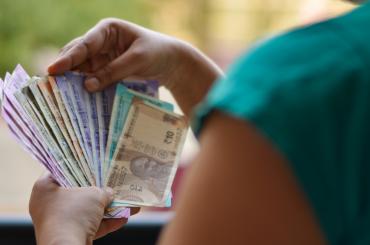
consumption
-

Boosting consumption in China: The effectiveness of minimum wages
Minimum wage increases in China are spent rather than saved, and are not associated with increased unemployment. In households with children, a significant portion of the additional income is allocated to healthcare and education.
-

Incentivising behavioural change: The role of time preferences
Bundling payment incentives over time is more effective in increasing effort among the impatient, relative to increasing payment frequency
-

Measuring the cost of living in Mexico and the US
Data on prices and quantities of consumer packaged goods suggest that Mexican real consumption relative to the US is larger than previously estimated
-

Informality, consumption taxes and redistribution
Taxes on consumption help governments in developing countries redistribute thanks to the presence of large informal sectors
-

Cash transfers and the wider economy: Evidence from Kenya
Do unconditional cash transfers increase welfare in communities as a whole, even within households that do not receive them?
-

Gold mining in Burkina Faso: Who wins?
While the state benefits more from industrial than artisanal mining, only artisanal mines increase the consumption of local populations
-

Can consumption patterns explain identity choices? Evidence from India
Evidence from India shows how both conflict and economic forces can cause people to realign their ethnic or religious identity
-

The Alibaba effect: Spatial inequality and the welfare gains from e-commerce
E-commerce disproportionately benefits consumers in small and remote places, helping to reduce disparities in living standards across locations
-

Is inequality underestimated in Egypt? Evidence from house prices
Evidence from the housing market suggests inequality is being substantially underestimated in Egypt, by about 33%